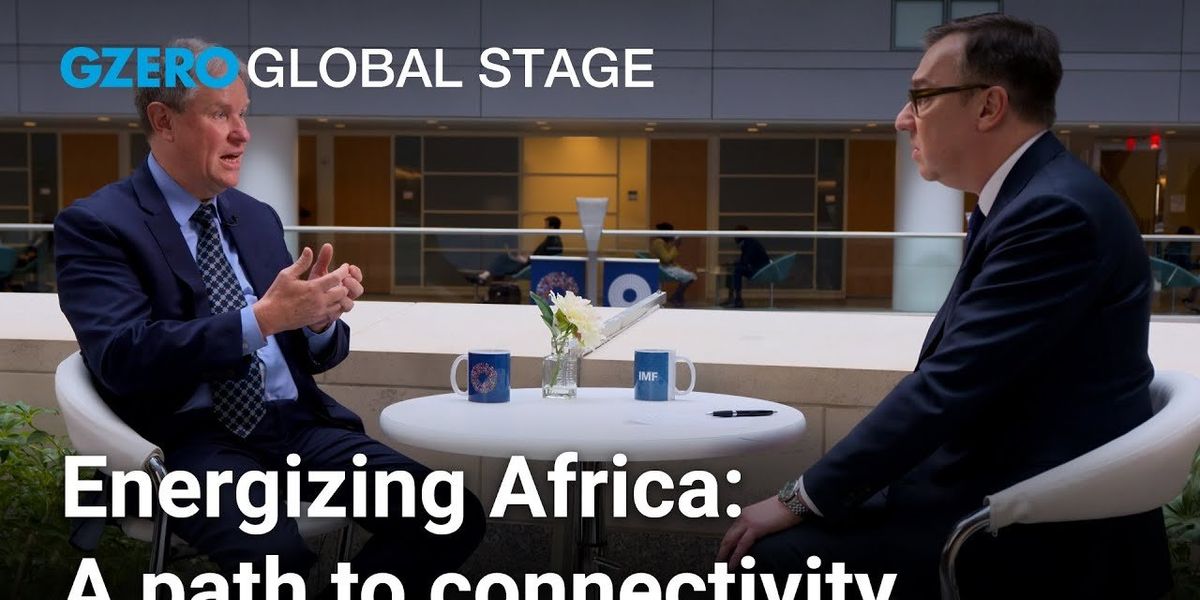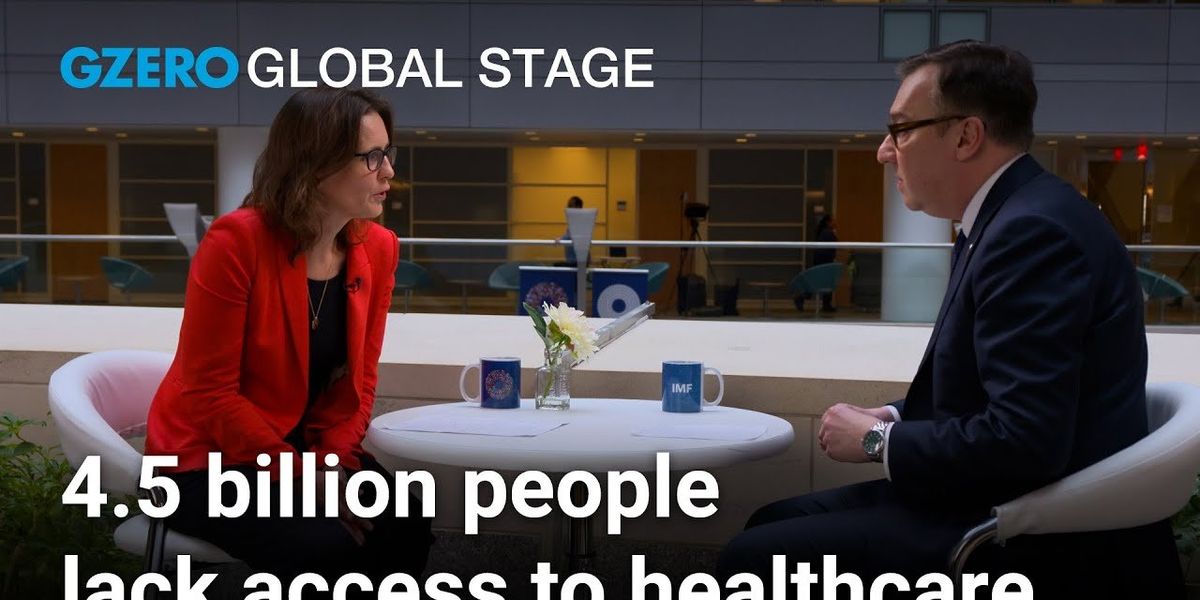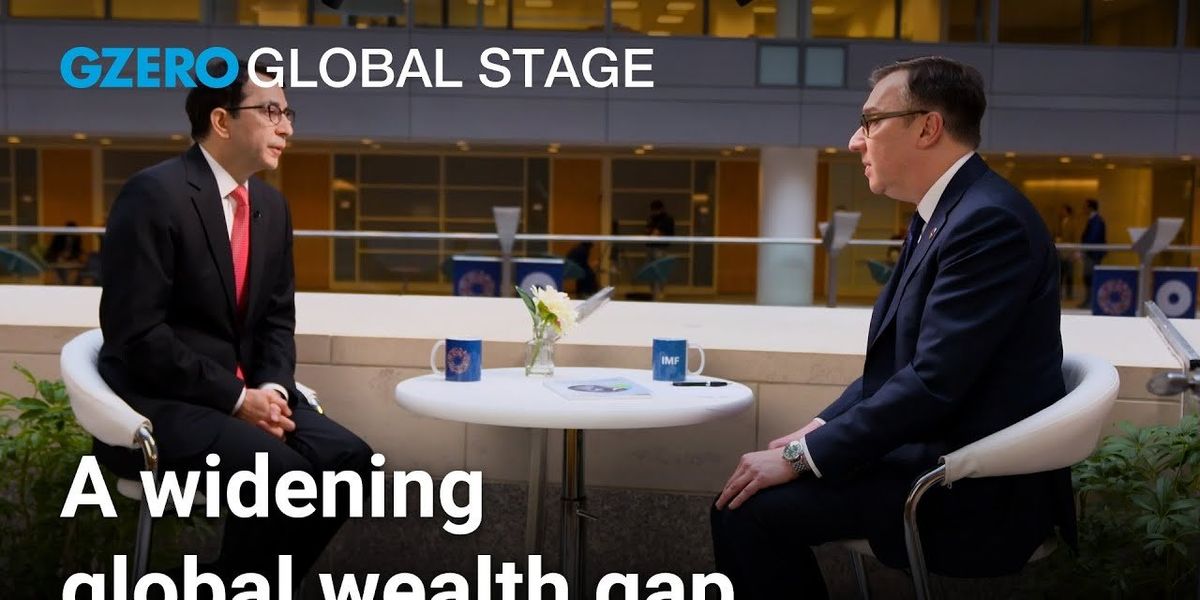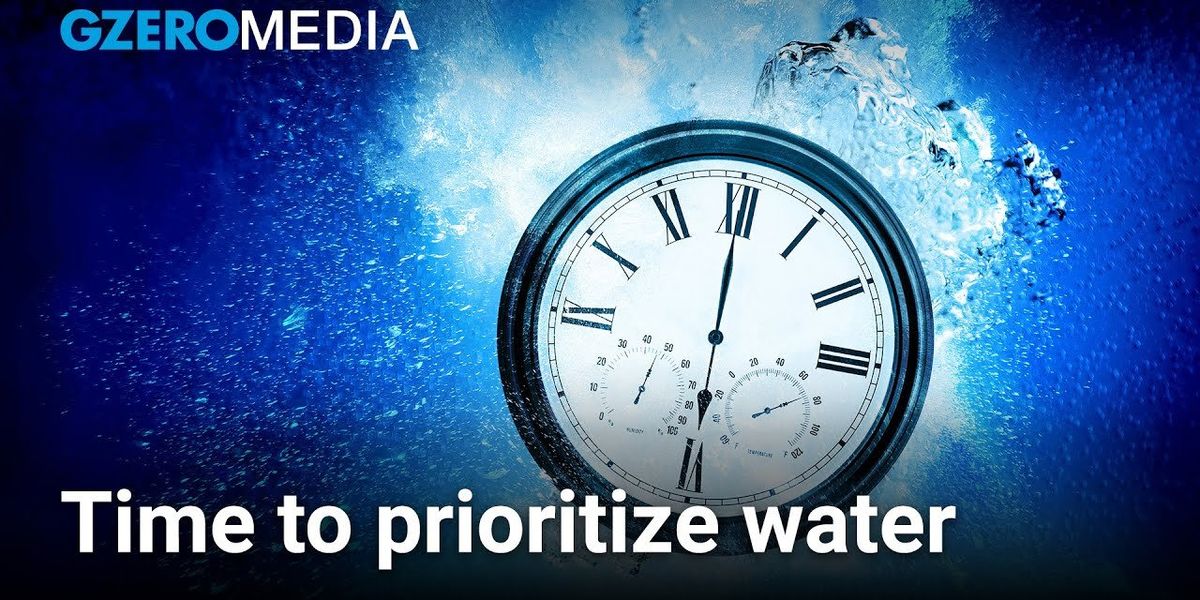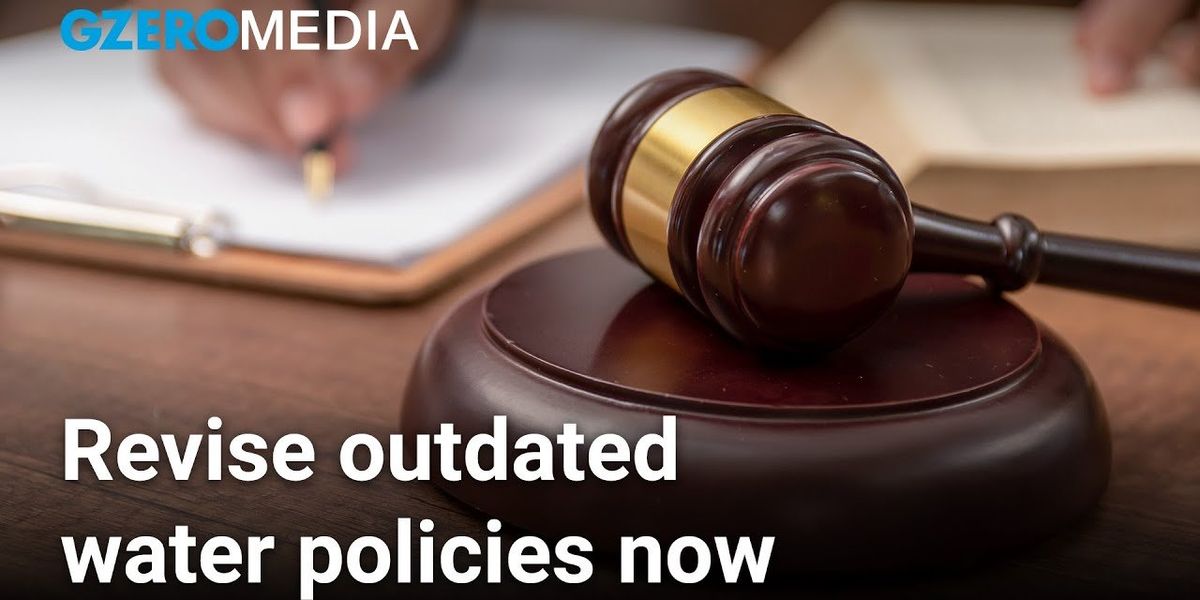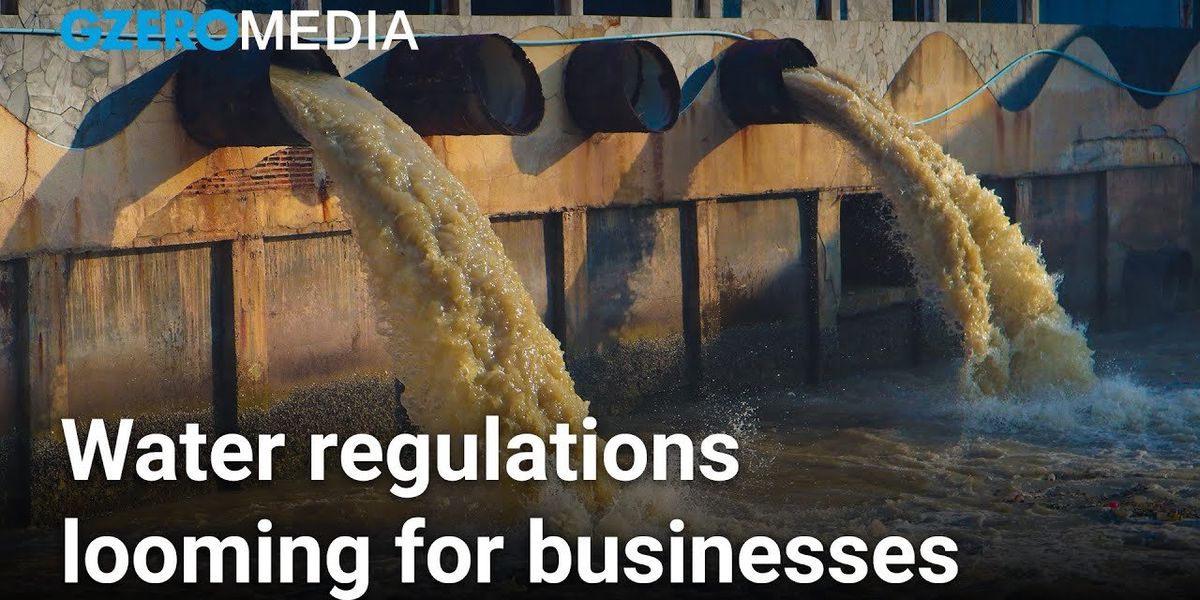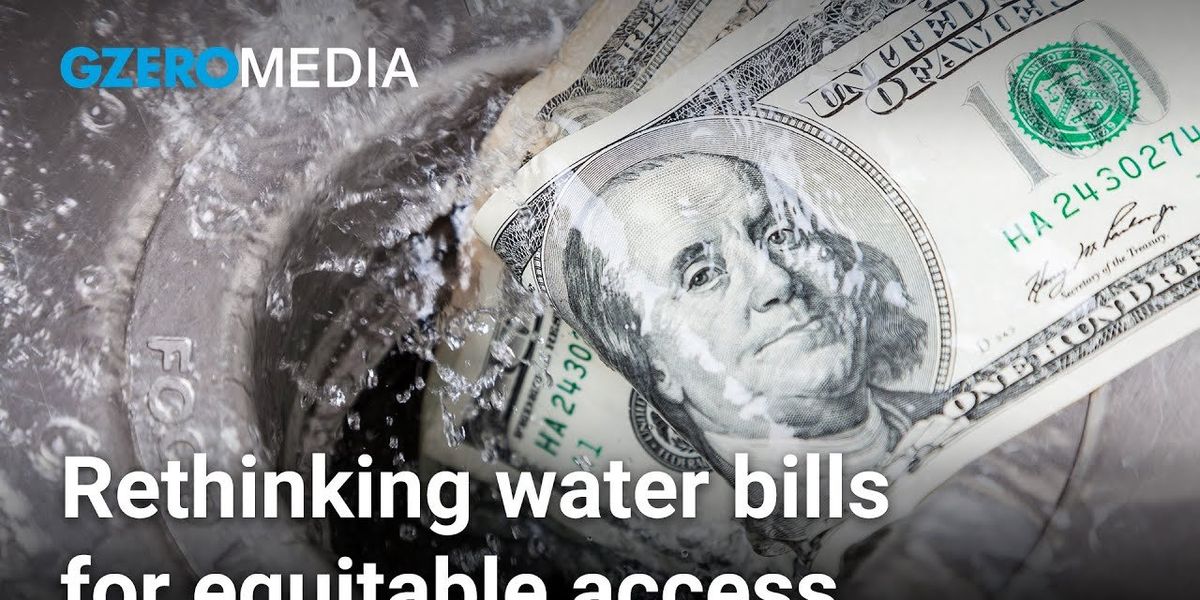Trending Now
We have updated our Privacy Policy and Terms of Use for Eurasia Group and its affiliates, including GZERO Media, to clarify the types of data we collect, how we collect it, how we use data and with whom we share data. By using our website you consent to our Terms and Conditions and Privacy Policy, including the transfer of your personal data to the United States from your country of residence, and our use of cookies described in our Cookie Policy.
{{ subpage.title }}
Watch our livestream: The Top Risks of 2025
WATCH: What's the world's #1 concern for the year ahead? Watch today's livestream with Ian Bremmer and global experts to discuss the Top Risks of 2025 report from Eurasia Group. The much-anticipated annual forecast of the ten biggest geopolitical risks to watch in 2025 has been released this morning. Evan Solomon, GZERO Media's publisher, will moderate the conversation with Ian Bremmer, president and founder of Eurasia Group and GZERO Media; Cliff Kupchan, Eurasia Group's chairman and a leader of the firm's global macro coverage; Susan Glasser, staff writer at the New Yorker; and Jon Lieber, Eurasia Group's head of research and managing director, United States.
Watch live at https://www.gzeromedia.com/toprisks
The Top Risks of 2025 with Ian Bremmer & Eurasia Group
Monday, January 6, 2025 | 12:00 PM ET | https://www.gzeromedia.com/toprisks
Sign up for GZERO's newsletters to get a reminder about this and other GZERO events.
World Bank announces plan to bring power to 300 million in Africa
World Bank Group is bringing power to the people. Literally.
This week, during the bank’s annual Spring Meetings, the group announced a major new initiative to provide electricity to 300 million Africans by 2030. It is estimated that nearly 800 million people globally lack access to power, and the vast majority of them, 600 million, live on the African continent.
GZERO’s Tony Maciulis met with the World Bank’s Director of Infrastructure for West Africa Franz Drees-Gross, to discuss the project's details.
Over the next six years, the World Bank aims to connect 250 million people using $30 billion of public sector funding largely drawn from its International Development Association. The development finance institution provides low-interest loans and grants to the poorest countries. The group has also partnered with the African Development Bank, which has committed to supporting an additional 50 million people.
The connectivity will come from a combination of sources, some existing and some to be created by the project.
“It turns out that the most cost-effective way to connect those 250 million people is to connect about half of them using off-grid solutions,” Drees-Gross said. “So that means solar home systems, it means mini-grids that aren't connected to the larger national grid, and the other half of that goal will have to be connected by grid extensions and grid densifications.”
The ambitious plan comes with challenges including fortifying and modernizing existing utility companies to be able to consistently provide power and collect customer payments.
“The problem in many Sub-Saharan African countries is that utilities aren't recovering their costs,” Drees-Gross said. “They lose 30, 40, sometimes 50% of electricity due to commercial and technical losses. Since they only invoice a fraction of what they buy from the generators and then fail to collect that entire amount, that leads to a deficit.”
That inconsistent business has made the utilities less attractive to private-sector investors. World Bank hopes its support in stabilizing the power industry in the region will be an opportunity that will bring in private investment, ultimately powering the growth of more economies in Africa.
For more of our 2024 IMF/World Bank Spring Meetings coverage, visit Glogal Stage.
Half the world can’t access healthcare. How can the World Bank help?
Globally, a shocking 4.5 billion people — more than half the world’s population — lack access to essential healthcare and another 2 billion have to make tough financial choices to find care. That means for the majority of people on earth when a child is sick, families can’t get medicine; when a mother gives birth, the delivery is unsafe; when people develop chronic conditions, they go untreated.
Billions of individual tragedies come together to hold back development in some of the world's most fragile countries, and that’s where the World Bank has a role to play. Monique Vledder runs the Global Health Practice at the World Bank, and she sat down with GZERO’s Tony Maciulis at a Global Stage event for the institution’s annual Spring Meetings.
She announced ambitious goals to start tackling the problem: “We are planning to reach, with our financing and our programs, 1.5 billion people over the next five years with quality health services,” she says, expanding the World Bank’s geographic footprint in healthcare to target vulnerable countries and build capacity in their healthcare systems.
For more of our 2024 IMF/World Bank Spring Meetings coverage, visit Glogal Stage.
- Advancing racial equality and economic opportunity ›
- Get AI out of my health care ›
- Slapping nutrition labels on AI for your health ›
- Hard Numbers: Grim warnings on climate change, Rich get richer, Gender healthcare gap, AI dominates the conversation ›
- Hot topics at the IMF-World Bank meetings - GZERO Media ›
World Bank economist: The poorest are getting poorer globally
It’s a staggering statistic and a marked setback from the years before the COVID-19 pandemic—the world’s poorest countries are falling further behind, and the wealth gap between the least and most developed nations is growing. One in three of these countries is poorer today than in 2019.
Ayhan Kose, World Bank Group’s Deputy Chief Economist, said that the combined shocks of multiple crises, including the pandemic, wars in Ukraine and the Middle East, food insecurity, and inflation, have taken a massive toll on the 75 least developed economies.
Kose spoke to GZERO’s Tony Maciulis as the annual Spring Meetings of the World Bank and the International Monetary Fund were underway this week in Washington, DC.
“When the food price goes up, the price of oil goes up. That has significant implications for these economies,” he told GZERO. “Where we are now, when you look at 2020-24, they registered the weakest growth rate on average since the 1990s.”
In many ways, the global economic outlook presented this week tells a tale of two post-pandemic realities. Kose explained that the most developed nations, particularly the US, showed greater resilience than expected early in 2023, and the threat of recession has been kept at bay. However, the negative impacts on poor countries, many of which are in Sub-Saharan Africa, cannot be ignored and could lead to greater geopolitical risk and humanitarian emergencies.
This week, World Bank leaders are calling for a renewed commitment to the International Development Association (IDA), which provides zero-interest loans and grants to nations most in need. Kose said the risk associated with crippling sovereign debt has caused some private sector funding to dry up and that politics and protectionism are impacting how wealthier nations approach funding.
But he also pointed to enormous opportunity in nations that are IDA-funded, including a younger population that could serve as a future global workforce and rich natural resources.
With proper investment and funding, he explained, other developing countries have been lifted to find sustained growth.
“At the end of the day history is full of examples. China, India, Indonesia, Chile, (South) Korea. They all used to be IDA borrowers. They were poorer countries. They became much richer.”
For more of our 2024 IMF/World Bank Spring Meetings coverage, visit Glogal Stage.
- What We're Watching: Nigerians vote, Biden's World Bank pick ›
- What We’re Watching: Terror in Kyiv, World Bank/IMF meetings ›
- Podcast: Fix the global debt crisis before it's too late, warns World Bank's David Malpass ›
- Debt limits of rich countries hurt poor countries' growth, says World Bank's Malpass ›
- World Bank's David Malpass on global debt & economic inequality ›
- How to tackle global challenges: The IMF & World Bank blueprint - GZERO Media ›
What will it take for the world to get serious about water?
Why did it take over twenty years for the UN's marquee climate conference to start talking about water? "It's undervalued and therefore, it's not getting the attention it deserves because people don't see the actual value addition of engaging with it," says James Dalton of the International Union for the Conservation of Nature.
"Roundabout 90% of global water policy is out of date," says James Dalton of the International Union for the Conservation of Nature. "We're effectively 40 years behind where we need to be on the policy calendar when it comes to being able to better manage our water resources."
He says that lack of attention has led humanity to "abuse the resource," overtaxing existing freshwater resources and exposing them to pollution. And as climate change threatens to create an even more dangerous and volatile water cycle, he asks, "can we get the direct action happening quickly enough before we really start to feel the pain of this?"
Dalton spoke at a GZERO Live event organized by the Sustainability Leaders Council, a partnership between Eurasia Group, GZERO Media, and Suntory.
Watch the full livestream conversation: The global water crisis and the path to a sustainable future
The world is way behind on water policy | James Dalton
When's the last time you remember a politician bringing up water policy on the campaign trail? It's far from the sexiest subject, but it absolutely merits discussion as climate change and overuse of water resources pose serious threats to the world's water systems.
"Roundabout 90% of global water policy is out of date," says James Dalton of the International Union for the Conservation of Nature. "We're effectively 40 years behind where we need to be on the policy calendar when it comes to being able to better manage our water resources."
The good news, he says, is progress is being made on frameworks to improve transparency around water policy and craft systems better suited to individual local needs. But he's worried about the technical skills required to manage complex sources like groundwater, and how competing interests will impact the development of new policy. Dalton spoke at a GZERO Live event organized by the Sustainability Leaders Council, a partnership between Eurasia Group, GZERO Media, and Suntory.
Watch the full livestream conversation: The global water crisis and the path to a sustainable future
Why businesses are leapfrogging governments on water issues
Water is an incredibly personal topic, integral to the lives and traditions of communities everywhere. That means companies must be very careful about how they use water resources, even those to which they are legally entitled, says Shari Friedman, Eurasia Group's Managing Director for Climate and Sustainability.
"If they're taking it away or they're polluting a source, it's something that's incredibly visible, as people use it," she said. "And it's something the press can pick up on pretty quickly, and it affects a company's license to operate."
That reputational risk has led some companies to start proactively rolling out plans to manage water use and keep sources clean and sustainable even in the absence of government regulations. But the government still has a role to play, said Friedman, pointing to emerging regulations around so-called "forever chemicals" and the European Union's attempt to improve river health by 2027.
She spoke at a GZERO Live event organized by the Sustainability Leaders Council, a partnership between Eurasia Group, GZERO Media, and Suntory.
Watch the full livestream conversation: The global water crisis and the path to a sustainable future
Water scarcity can sink a city, says expert Tanvi Nagpal
Who ends up paying for all the waste and losses from old, leaky water systems? Ordinary families. For the most part, they have no choice but to foot higher and higher bills just to keep access to the water they need to live.
However, failure to invest in water systems and keep costs low for consumers can lead to huge consequences, according to Tanvi Nagpal, water policy expert and consultant for Tetra Tech. For example, Jakarta's failure to keep its water system up with its population growth led people to dig wells to provide themselves with the needed water. The result? One of the largest cities in the world and an economic engine of southeast Asia is physically sinking into the ground.
"We must think through an approach where we believe that everybody should get water, not just because we deserve water, but because it's important for all of society that everybody get this access to clean water," she said at a GZERO Live event organized by the Sustainability Leaders Council, a partnership between Eurasia Group, GZERO Media, and Suntory.
Watch the full livestream conversation: The global water crisis and the path to a sustainable future
- Ian Explains: The problem of our diminishing water supply ›
- Water will become very political in 2023, says Eurasia Group analyst ›
- Water crisis: Preserving fresh water sources is crucial to survival ›
- The uncomfortable truth about water scarcity ›
- The world is way behind on water policy | James Dalton - GZERO Media ›
- What will it take for the world to get serious about water? - GZERO Media ›
- What will it take for the world to get serious about water? - GZERO Media ›
